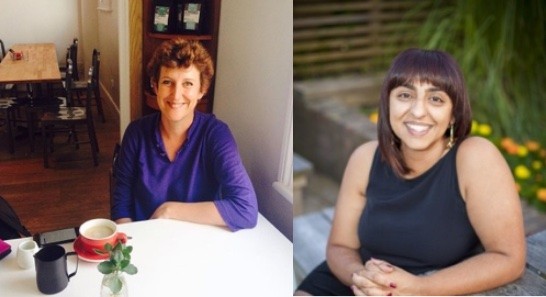Join us to discuss: So what's poverty got to do with it?
Start: Saturday, July 19, 2025•10:00 AM
End: Saturday, July 19, 2025•12:30 PM

Poverty has far-reaching consequences— not just for the families who experience it, but for the wellbeing of our communities, our social fabric, and the health of our democracy.
In short, a deeply unequal society is a failing society. Inequality undermines trust, erodes opportunity, and damages the foundations on which fair and thriving communities are built.
Our next coffee morning will explore not only the human cost of poverty, but what inequality means for our communities, our wellbeing, and our democracy.
Our speakers will examine these issues from a national and local perspective:
Andrea Cornwall – Political Anthropologist and Advocate for Inclusive Development
Andrea Cornwall is a political anthropologist whose work centres on gender, sexuality, citizen participation, and inclusive governance. She has worked for Institute of Development Studies (IDS) at Sussex, and now teaches at Kings College. Andrea has explored how democratic spaces can become more participatory and accountable.
Across her career she has consistently highlighted the lived realities of poverty and marginalisation. Her work asks: what must change to ensure those most affected by decisions and systems have a voice and real influence?
Reyna Kothari, CEO and Consultant
Reyna has been working in the Not for Profit sector for the last 12 years, following a 15 year career in senior business management and consultancy in retail and hospitality, both in the UK and abroad.
Currently, Reyna supports other third sector organisations with operations, strategic planning, finance and community engagement and is the CEO of The Old Boat Corner Community Hub in Hollingbury which addresses the financial and social needs of the Brighton and Hove community.
Background
Britain has one of the widest wealth gaps in Europe. The richest 10% of households own nearly half the nation’s wealth, the poorest 50% just 9%. The top 10% average over £1.3 million in wealth; the bottom half, just £3,200. There are also huge regional disparities - households in London and the South East are typically twice as wealthy as those in the North East. But even in the so-called wealthy South East, there are huge disparities.
In Brighton & Hove, these inequalities are starkly visible. Affluent central areas sit close to some of the UK’s most deprived neighbourhoods, such as Whitehawk and Moulsecoomb. Health outcomes, housing access, and education vary dramatically by postcode.
There is now a ten-year gap in life expectancy between the city’s richest and poorest neighbourhoods - a pattern repeated across the UK. In wealthier areas, 76% of adults report good health; in poorer areas, only 56%. Despite local efforts - school admission reforms, social housing, and fairness funding -structural inequality remains deeply entrenched.
The contrast is stark. Britain ranks among the world’s wealthiest nations, and Brighton among its most affluent cities. Yet each week, over 6,400 people in Brighton & Hove rely on food banks - a 25% rise from last year - and around 10,000 children (26.4%) are growing up in poverty. Nationally, food bank use reached 2.3 million in 2022/23
